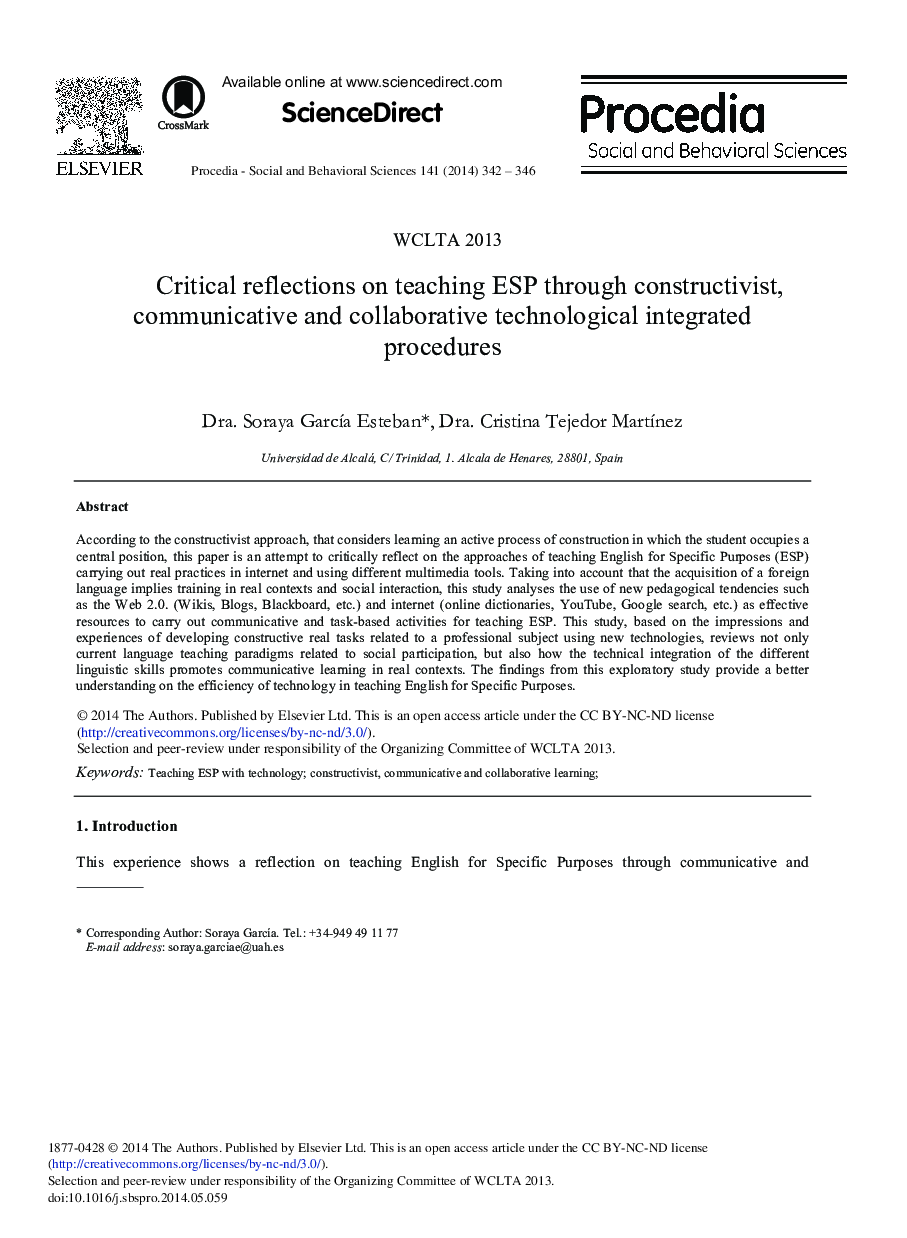| Article ID | Journal | Published Year | Pages | File Type |
|---|---|---|---|---|
| 1113254 | Procedia - Social and Behavioral Sciences | 2014 | 5 Pages |
According to the constructivist approach, that considers learning an active process of construction in which the student occupies a central position, this paper is an attempt to critically reflect on the approaches of teaching English for Specific Purposes (ESP) carrying out real practices in internet and using different multimedia tools. Taking into account that the acquisition of a foreign language implies training in real contexts and social interaction, this study analyses the use of new pedagogical tendencies such as the Web 2.0. (Wikis, Blogs, Blackboard, etc.) and internet (online dictionaries, YouTube, Google search, etc.) as effective resources to carry out communicative and task-based activities for teaching ESP. This study, based on the impressions and experiences of developing constructive real tasks related to a professional subject using new technologies, reviews not only current language teaching paradigms related to social participation, but also how the technical integration of the different linguistic skills promotes communicative learning in real contexts. The findings from this exploratory study provide a better understanding on the efficiency of technology in teaching English for Specific Purposes.
